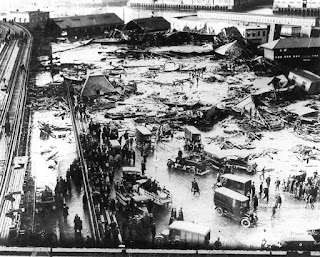Martha Washington, Slave Owner
When we think of Martha Washington we often think of a reserved and private woman, we also think of her freeing slaves. Yet, "great emancipation" is sometimes not what It seems. The Washington's lived a very comfortable life. After George passed on, it became well known that after the death of Martha his slaves would be freed. We know that, about two years before her death, Martha Washington freed those slaves.
Based on a few surviving letters that Martha Washington wrote, it can be inferred that she did not free these people out of the kindness of her heart. She once wrote that "The Blacks are so bad in their nature that they have not the least grat[i]tude for the kindness that may be shewed them." (This and other letters can be found on Mount Vernon's website)
Martha did not question slavery. I mentioned in a previous post that we must be careful and what and who we put on pedestals. We look at the Washington's as he's great slave emancipator's when, at least in Martha's case, this is no such truth.
Martha most likely freed George's slaves out of fear. She believed they would poison her, or do anything to bring about her demise. Thusly, she freed them out of fear, not kindness. It is also important to note that she never freed any slave personally owned by herself.
Always be careful how you put a person on a pedestal.
Based on a few surviving letters that Martha Washington wrote, it can be inferred that she did not free these people out of the kindness of her heart. She once wrote that "The Blacks are so bad in their nature that they have not the least grat[i]tude for the kindness that may be shewed them." (This and other letters can be found on Mount Vernon's website)
Martha did not question slavery. I mentioned in a previous post that we must be careful and what and who we put on pedestals. We look at the Washington's as he's great slave emancipator's when, at least in Martha's case, this is no such truth.
Martha most likely freed George's slaves out of fear. She believed they would poison her, or do anything to bring about her demise. Thusly, she freed them out of fear, not kindness. It is also important to note that she never freed any slave personally owned by herself.
Always be careful how you put a person on a pedestal.





I had no idea about that
ReplyDelete